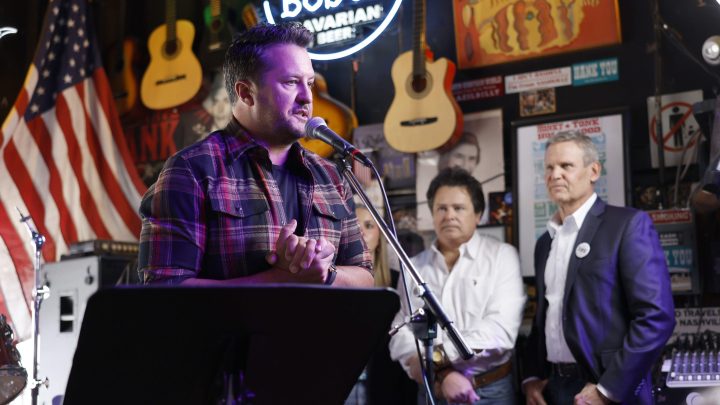
New Tennessee law aims to protect musicians from generative AI
New Tennessee law aims to protect musicians from generative AI

Last week, Tennessee — home of the country music mecca, Nashville — became the first state in the union to pass a law, called the ELVIS Act, targeting the unauthorized use of artificial intelligence to replicate musicians’ voices.
The music industry has been keeping a very close eye on generative AI. Last summer, a song featuring AI clones of Drake and The Weeknd went viral, until record labels threatened legal action. Legislatively — and economically — it is a brave new world for AI music.
The internet loves AI Johnny Cash. Just look to his rendition of Aqua’s “Barbie Girl”.
Recording Industry Association of America CEO Mitch Glazier says he thought the “Barbie Girl” / “Folsom Prison Blues” mashup was pretty funny.
“I still think the Johnny Cash estate should get to decide whether they use his voice on something,” Glazier said. “But the ideas are very clever and, to me, that says that there’s a marketplace out there.”
That marketplace is basically how much listeners and tech companies might pay for a license to use an artist’s voice. So if you have a Rihanna voice clone singing you a personalized rendition of happy birthday, the human Rihanna gets paid — which is partly why the record labels pushed so hard for that Tennessee law.
“One of the reasons we’re acting so fast is we don’t want those markets undermined before they have a chance to take off,” said Glazier.
Tennessee’s act updates the state’s right to publicity law, a statute every state has that says actors or musicians (or even us lowly non-celebrities) have control over our name, image or likeness.
The new Tennessee law is pretty aggressive in who might be found liable for using voice clones, per University of Pennsylvania law professor Jennifer Rothman.
“I don’t think people even realize how broad it is,” she said. “It could potentially be a teenager messing around in their bedroom and putting something on Instagram.”
States across the country are updating their right to publicity laws, and Congress is working on a federal version.
It’s a step in the right direction, argues AI music expert Ed Newton-Rex at the nonprofit group Fairly Trained. But he said that the bigger issue is how these AI music models get created in the first place.
“The really pernicious threat that this doesn’t cover is training these models at all on a bunch of people’s work without their consent,” he said.
In other words, even if you can’t use Johnny Cash’s voice, you could use AI that was built on his music to make a new country song — and his estate wouldn’t see a dime from that.
There’s a lot happening in the world. Through it all, Marketplace is here for you.
You rely on Marketplace to break down the world’s events and tell you how it affects you in a fact-based, approachable way. We rely on your financial support to keep making that possible.
Your donation today powers the independent journalism that you rely on. For just $5/month, you can help sustain Marketplace so we can keep reporting on the things that matter to you.











